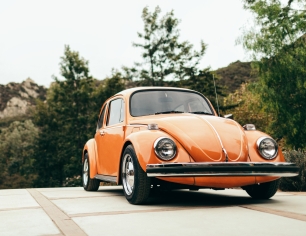How does insurance for classic trucks work?
Insurance for classic trucks works in the same way insurance for classic cars works with slightly different requirements. A specialty provider insures your truck for its agreed value rather than its depreciated value. Coverages work similarly to a standard auto policy, but when you get classic truck insurance, you must adhere to usage limitations. Insurance companies have different definitions of what makes a truck a classic, and the rules about classic trucks vary from state to state.
Explore Progressive Answers' auto editorial guidelines to find out why you can trust the car insurance information you find here.
Are truck and car insurance the same when it comes to "classic" vehicles?
For the most part, classic trucks and classic cars are treated similarly by specialty insurers, including Progressive Classic Car by Hagerty. The main notable difference is in how an insurer might define a classic truck. For example, a truck needs to be at least 25 years old to qualify as a classic, while the classic car definition includes more modern collectible and enthusiast vehicles from the 2000s to today. That said, different insurers (and sometimes states) have different rules about what makes a truck a classic.
Hagerty can insure collector trucks 25 years and older,* and you'll have to meet certain criteria about your classic truck's usage, storage, and driver eligibility. Learn more about how classic car insurance works.
Is insurance for classic trucks different from antique truck insurance?
There aren't separate insurance categories based on whether your truck is considered "classic" or "antique." With Hagerty, as long as the truck is 25 years or older, classic and antique trucks have the same insurance eligibility criteria, valuation method, and coverage options. Learn more about classic car values.
Are there other requirements to qualify for classic truck insurance?
Most specialty insurance companies won't insure just any classic truck. The classic truck must have some value — at least $3,500 with Hagerty. Insurers usually also require classic trucks to be in good working order, though some companies may make exceptions if you're repairing or restoring the truck.
Are there limits to how I can use my truck with classic truck insurance?
Most specialty insurers, including Hagerty, require that you not use your classic truck for typical day-to-day driving like your work or school commute or running routine errands. Occasional pleasure use and driving your classic truck to auto shows, car club events, and other collector-focused gatherings are permitted. Usage rules will vary by insurer, so check your policy.
Check with your insurance company if you'd be covered while using your truck to haul, tow, drive off-road, or participate in other truck-related activities. Hauling and towing may be allowed in certain situations, but off-road driving is generally off-limits. If you've modified your truck to make your insurer suspect you might take your classic truck for an off-road spin, they might decide not to insure it.
Does insurance for classic trucks provide coverage different from regular pickup trucks?
Classic truck insurance mostly works the same as regular auto insurance. However, classic truck insurance usually allows you to insure your truck up to its agreed value, known as its Guaranteed Value® by Hagerty, instead of its depreciated or replacement value.†
With agreed value coverage, your insurer will appraise your truck, factoring in modifications and restorations you've made, and give you a classic truck insurance quote based on its valuation. If you agree to that value, it becomes your coverage limit in the event of a total loss due to a covered incident, minus your deductible and the salvage value of the truck if you decide to keep it.**
These are all of the coverage options Hagerty offers for classic trucks:
- Liability (starting at the minimum required by your state)
- Comprehensive and collision
- Optional roadside assistance
- Other optional coverages for spare parts and tools, automobilia, increasing limits while your truck is under construction, and more
Tips for getting classic truck insurance:
- Know how often you want to drive your classic truck: If it's just occasionally, shop around for classic truck insurance. You may need standard auto insurance if you need to drive it regularly.
- Provide as much detail as possible for an accurate valuation: Year, make, model, body type, and engine size are good starting points. Remember also to provide the current condition of your truck, including any modifications and restoration work.
- Determine if you need coverage for ongoing restoration work: If your classic truck is undergoing restoration, its value may increase as work is done. Restoration coverage can protect your truck's increasing value while it's under construction.
Are classic trucks expensive to insure?
Classic truck insurance is generally less expensive than insurance for a brand-new truck. The cost of insurance for a classic truck is based on the agreed value of the vehicle, and how often you'll be driving it. If you plan to use the truck as a daily driver, you'll likely need to get a standard auto insurance policy.

Get a free quote for classic car insurance today
Learn more about classic car insurance policies.









